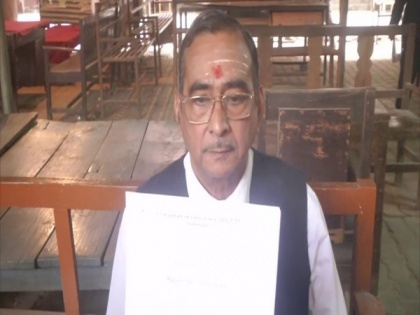Kashi Vishwanath Temple case: UP court allows ASI to survey disputed premises
By ANI | Published: April 8, 2021 10:57 PM2021-04-08T22:57:36+5:302021-04-08T23:05:07+5:30
A Uttar Pradesh court on Thursday allowed the Archaeological Survey of India (ASI) to survey the disputed premises in Varanasi that is claimed by both the Kashi Vishwanath Temple and Gyanvapi Mosque complex.

Kashi Vishwanath Temple case: UP court allows ASI to survey disputed premises
A Uttar Pradesh court on Thursday allowed the Archaeological Survey of India (ASI) to survey the disputed premises in Varanasi that is claimed by both the Kashi Vishwanath Temple and Gyanvapi Mosque complex.
The court directed the Yogi Adityanath-led BJP government to bear the cost of the survey.
The directive was given by Varanasi First Track Court judge Ashutosh Tiwari. They have also asked the ASI to submit a report after the survey.
The order came on a petition filed by local lawyer Vijay Shankar Rastogi, who had demanded that the land entailing the Gyanvapi Mosque be restored to Hindus.
Rastogi said, "The court also stipulated that at least two members of the five-member team of eminent archaeologists should be from the minority community."
In his plea, he has contended that the Gyanwapi Mosque in Varanasi is a part of Vishveshwar Temple.
The High Court stayed the proceedings in the lower court which had continued for the past 21-22 years, Rastogi said.
After a directive of the Supreme Court, the proceedings had started from 2018, Rastogi further said.
On the other hand, Uttar Pradesh Sunni Central Waqf Board's Chairman Zufar Ahmad Faruqi said that the order of the Civil Judge, Varanasi ordering a survey by the ASI will be challenged before the Allahabad High Court.
"Our understanding is clear that this case is barred by the Places of Worship (Special Provisions) Act, 1991. The Places of Worship Act was upheld by a five-judge Constitution Bench of the Supreme Court in the Ayodhya judgment. The status of Gyanvapi Masjid is, as such, beyond question," it said.
Even otherwise, we can say as per legal advice that the order of survey is questionable because technical evidence can only supplement certain foundational facts, he said in the statement.
The ASI did not find proof that the Babri Masjid was built upon demolition of a temple, he added.
The Supreme Court has specifically observed that there was no such evidence. Thus, this practice of mosques being 'investigated' by the ASI has to be stopped.
"We will be approaching the High court immediately against this unwarranted order," he added.
( With inputs from ANI )
Disclaimer: This post has been auto-published from an agency feed without any modifications to the text and has not been reviewed by an editor
Open in app